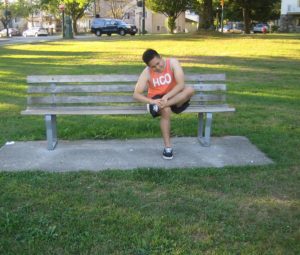A calf muscle cramp is an involuntary muscular contraction that can be quite painful but can also result to muscle damage in serious cases.
The leg cramps can occur involuntarily. The cramping can develop among those who train hard especially runners at some point. The usual site includes the calf muscles which includes the soleus ang gastrocnemius muscle.
What are the possible causes?
Even though the precise cause of a calf muscle cramp has not yet been fully determined, there are several possible causes such as:
- Dehydration due to poor intake of water can occur especially during warm conditions. Low water simply means low blood volume which can affect the muscles.
If an individual experience a calf muscle cramp, the muscle must be stretched where it is held for as long as needed. - Low level of sodium or potassium in the body. As one sweats, salts are lost which must be replaced.
- Low carbohydrate level. As the main source of energy for the muscles, running low on carbohydrates can affect the muscles.
- Taut muscles have contracted and has been squeezed out of blood. The muscle with limited blood and nutrients is drastically affected.
An episode of a severe calf muscle cramp can result to damage. The muscle fibers might tear due to the strength of the muscular contraction. Once this occurs, the muscle becomes painful for some time.
A full rehabilitation program with massage can help restore the muscle to its original state. In most cases, it is managed in the same manner as a strain.
Management of a calf muscle cramp
If an individual experience a calf muscle cramp, the muscle must be stretched where it is held for as long as needed. Gentle massage of the muscles can also help in alleviating the symptoms by promoting improved blood flow.
Sports massage can also help improve the condition by helping the tight or knotted muscles relax. Strengthening and stretching can also help in preventing future episodes of cramping.

